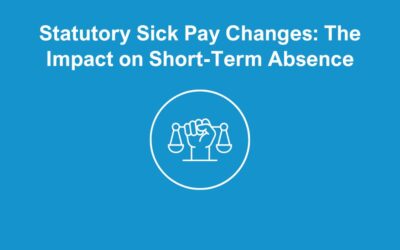In recent years, the idea of a four day working week has gained traction, with companies around the world considering this as an option. While it may sound appealing to have an extra day off, there are both pros and cons to working fewer days and compress hours.
More than 60 businesses decided to take part in a 6-month trial in 2022. Over 90% of businesses who have taken part in this have decided to continue trying out the four day week. Employers who were a fan of the trial found that it brought a variety of benefits including increased productivity.
However, we understand that this type of flexible working won’t necessarily work for all businesses. In this article, we’ll explore the advantages and disadvantages of a shorter working week to help you make your decision.
What is a 4 day working week?
Some of the things that employers are unsure of is how this works and what it involves. In this particular trial we discussed above, businesses offered an 100-80-100 model. This means employees received 100% pay for working 20% less hours in exchange for 100% productivity.
For businesses who are unable to offer this, they can look at allowing their staff to spread their normal hours over 4 days instead of 5.
However, there are other variations such as a compressed workweek, where employees work a full-time schedule over fewer than five days, and a split-week arrangement, where employees work compressed hours in one week and then three days in the following week. The idea behind a 4 day working week is to give employees an extra day off while maintaining their productivity and work output.
The Pros
- Improved work life balance: One of the main advantages is a better employee wellbeing and have a better work-life balance. With an extra day off, workers have more time to pursue hobbies, spend time with family and friends, and engage in activities that help them relax and recharge.
- Increased productivity: Many studies have shown that reducing the number of working days in a week can actually increase productivity. With a shorter workweek, employees are more focused and motivated, which can result in higher levels of productivity.
- Better employee health: Long working hours can have a negative impact on employee health. A 4 day working week can help reduce stress levels, improve mental health, and reduce the risk of burnout.
- Attract and retain talent: Companies that offers this can attract and retain top talent. This can be a significant advantage in today’s competitive job market.
The Cons:
- Difficulty in coordinating schedules: If not all employees in a company work on the same 4 day schedule, it can be difficult to coordinate schedules and ensure that everyone is available when needed.
- Longer workdays: A 4 day working week usually means longer workdays. While employees have an extra day off, they may end up working longer hours on the days they are in the office.
- Decreased availability: A shorter workweek can mean that employees are less available to clients, customers, or colleagues. This can be a disadvantage in some industries where being available during traditional business hours is important.
A 4-day working week can improve work-life balance, productivity, and employee health
A four-day working week has advantages and disadvantages. While it can improve work-life balance, productivity, and employee health, it can also result in longer workdays and decreased availability. Companies considering a four-day working week should carefully weigh the pros and cons and consider whether it is the right choice for their employees and industry.
However, if you find your business can still thrive while offering this type of flexible working, we encourage you to try it out. This will help you gain and retain talented employees.
The UK Labour government has been promoting the idea of more flexible working arrangements, including the possibility of a four-day compressed working week. This concept is part of broader efforts to improve work-life balance, enhance productivity, and support workers’ well-being.
Labour Government’s Flexible Working Proposal
Workers in the UK currently have the right to request flexible working from day one of their employment. However, Labour has put forward a proposal to expand on this to ensure that flexibility is the default. This includes compressed working hours. A compressed working week allows employees to work their full hours over fewer days, typically four days instead of five, without a reduction in pay. The goal is to enable workers to maintain full-time work while enjoying an extended weekend or more personal time.
This initiative aligns with Labour’s focus on modernising the world of work. By giving workers more autonomy over how they structure their work. This proposal also aims to support working parents balance work and childcare. The policy has been especially relevant in the post-pandemic world, where remote and flexible working has gained traction.
Additionally, advocates argue that a four-day week could boost productivity, reduce burnout, and promote better mental health. However, it remains up to individual employers to assess whether this arrangement would suit their operations. The right to request flexible working does not guarantee approval, as employers can still reject requests if they have valid business reasons.
Overall, Labour’s plans to expand flexible working rights, including the possibility of a four-day compressed week, represent a shift towards more adaptable working practices in the UK labour market. You can find out more about Labour’s plans in their online proposal.

The Four-Day Week Trial in June 2022
A four-day week trial started on 6th June where more than 70 businesses in the UK have taken part in a pilot to reduce working hours. The trial which is being led by 4 Day Week Global, will last for 6 months and results will be monitored by top universities such as Cambridge and Oxford. During this time, employees will work 80% of their usual hours but will be paid 100% of their salary.
As we continue to navigate our way through a candidate-driven market, we’re all looking at ways to gain and retain the best staff. Flexible working has become an essential way of working for many. In addition, we are looking forward to finding out the results of the experiment. In the meantime, we will give you a better understanding of the pilot and what a four-day week may mean for your business.
What is the four-day working week pilot?
The 6-month pilot which began on 6th June 2022 in the UK, will see more than 3,300 employees taking part. During this time, staff will receive their full salary but will work 1 day less than what they usually do. In return, they must maintain the same amount of productivity during this time. What’s great about the experiment is that a wide range of sectors will be taking part. This will give businesses an insight in to success rates for their specific sector.
To ensure accuracy, the trial will be managed by UK think tank Autonomy, researchers at Cambridge University, Oxford University, Boston College, the 4 Day Week UK Campaign, and 4 Day Week Global. These organisations will work closely with the businesses to analyse productivity, employee wellbeing, gender equality, and environmental impact.
The team will also monitor the impact on work-life balance. They will spent time with employees to monitor stress levels, sleep, how they travel to work, and much more.
Juliet Schor, lead researcher and professor of sociology at Boston College said: “The four-day week is generally considered to be a triple-dividend policy – helping employees, companies, and the climate.”
What are the potential benefits for employers?
There’s a lot of benefits that a 4-day week can bring. One of these benefits can be reduced costs. If the office is closed an extra day a week, running costs will likely drop.
An employee with a better work/life balance is a happier, more focused, and loyal employee. Having more of a personal life can also improve wellbeing.
Offering a more flexible way of working can also help you to attract talented candidates. a 4-day working week is a rare offering at the minute. In addition, this can be a great way to show your business thinks about the future. It also shows you take work-life balance seriously.
However, a 4-day week may not work for every business. It’s important to weigh up the benefits and negatives before making any changes.







